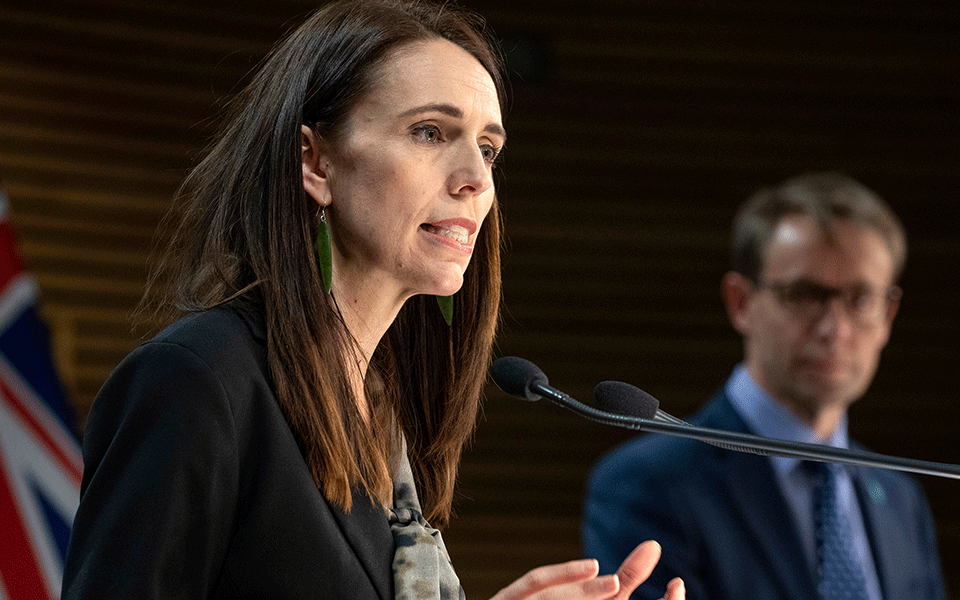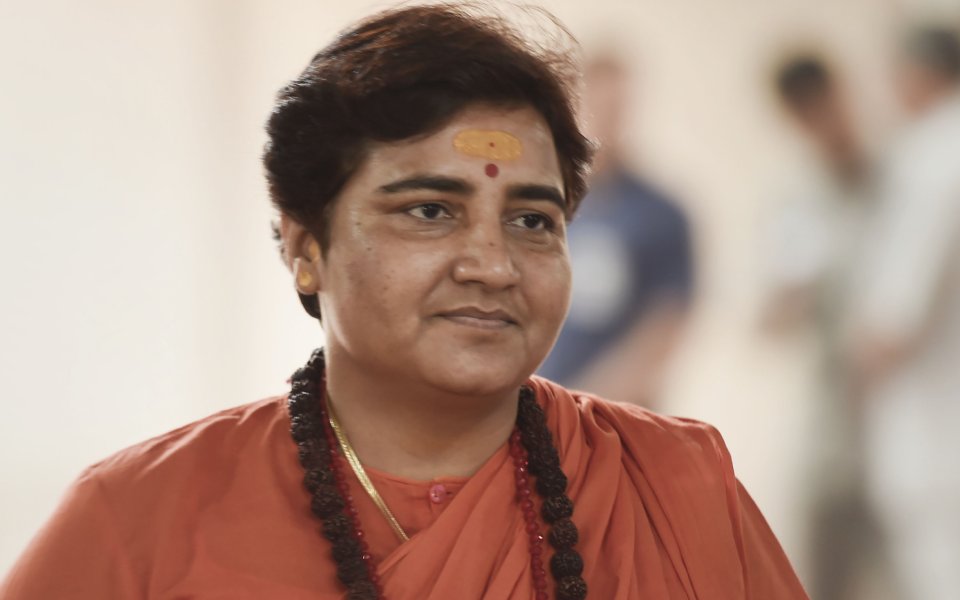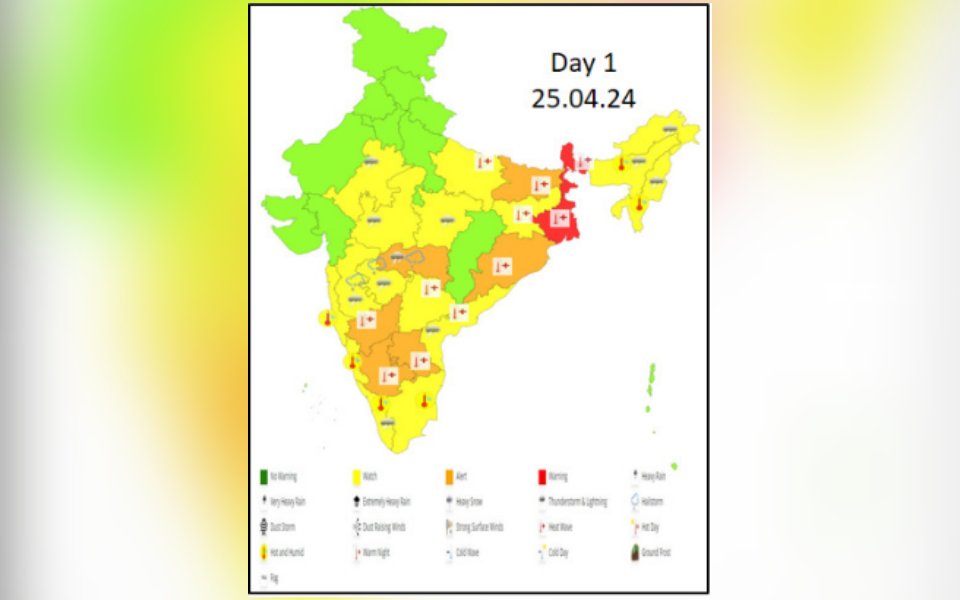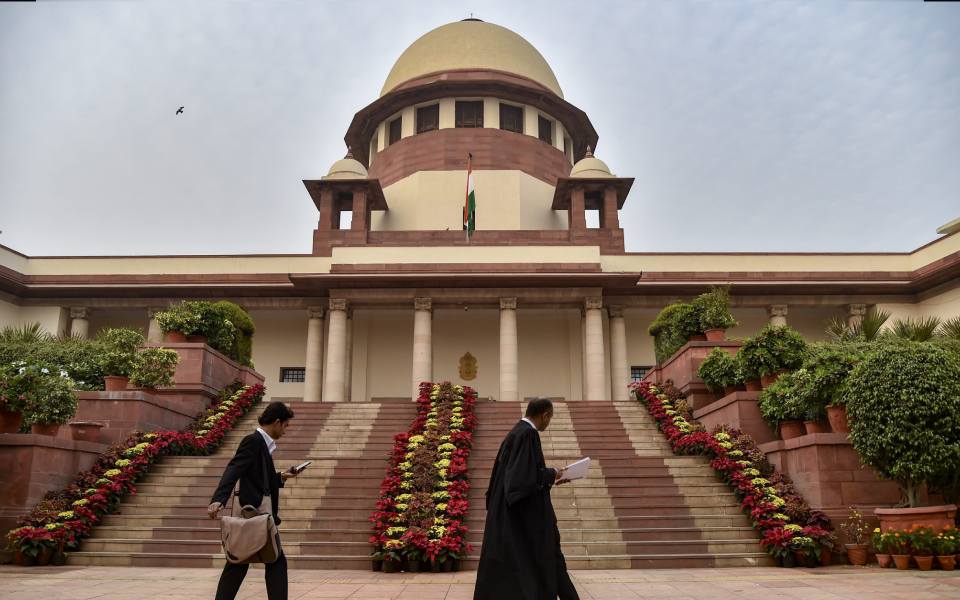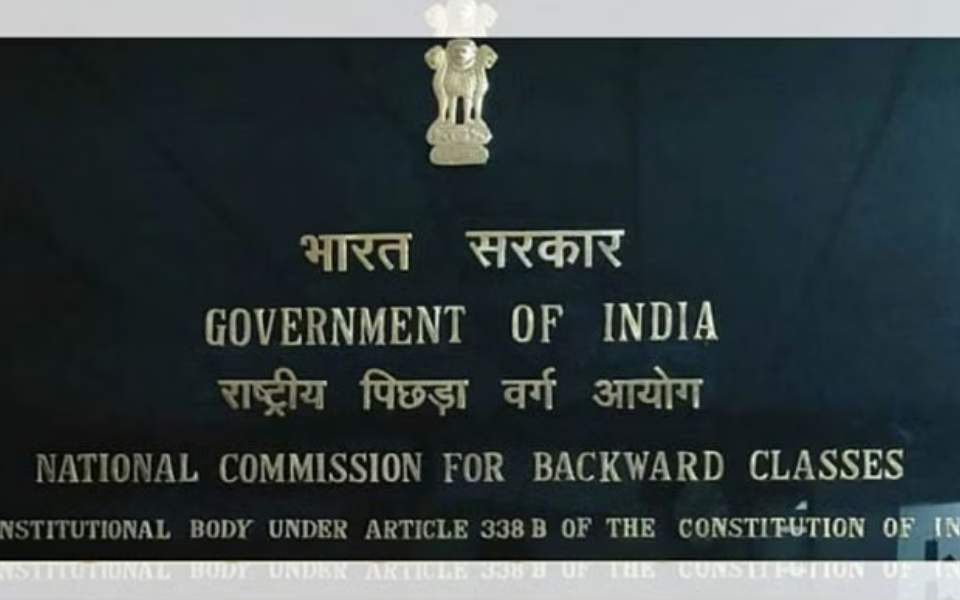Wellington: Health authorities in New Zealand were scrambling on Wednesday to trace the source of a new outbreak of the coronavirus as the nation's largest city went back into lockdown.
Authorities had confirmed four cases of the virus in one Auckland household from an unknown source and were awaiting the test results of four more people they suspect have infections two work colleagues and two relatives of those in the house.
The cases this week were the first known local transmission of the virus in New Zealand in 102 days. Prime Minister Jacinda Ardern said more than 200 people with connections to those in the house were contacted Wednesday.
"Our plan of mass testing, rapid contact tracing and, of course, our restrictions to stop the chain of transmission has been in full swing in Auckland today," Ardern said.
Director-General of Health Ashley Bloomfield said one of the people who tested positive works at an Americold food cold-storage facility in Auckland, which was being swabbed to check if it was possible source of the infections.
"We do know from studies overseas that actually, the virus can survive in some refrigerated environments for quite some time, he said.
The cluster came as an unpleasant surprise to many and raised questions about whether the nation's general election would go ahead as planned next month.
Bloomfield said two of the people who had tested positive had travelled to the city of Rotorua while suffering symptoms over recent days and had visited several tourist attractions.
People in Rotorua and indeed around the country should be vigilant about their health and seek advice if they have symptoms," he said.
Auckland was moved to Alert Level 3 at midday Wednesday, a designation initially set to continue through midnight Friday. That means that non-essential workers are required to stay home, while bars, restaurants and most businesses will be closed.
The rest of the country was moved to Alert Level 2, meaning that mass gatherings are limited to 100 attendees and people are required to socially distance themselves.
Bloomfield said they would use genome sequencing as part of their effort to find the source of the new outbreak.
Prime Minister Jacinda Ardern said she had worked quickly to impose the Auckland lockdown measures after first learning about the cases Tuesday afternoon.
She said Aucklanders were also strongly encouraged but not mandated to wear masks, and that authorities were releasing 5 million masks from a central supply. New Zealanders have not widely worn masks before, although authorities have been urging people to buy them or fashion them from scarves or bandannas just in case.
The nation's parliament was due to be dissolved Wednesday ahead of a general election on September 19 as lawmakers hit the campaign trail. But Ardern said she was delaying the dissolution until at least Monday in case lawmakers needed to meet at short notice. She said she was also seeking advice about options for the election.
Under New Zealand law, the government could delay the election for up to about two months. The main candidates have already cancelled most of their planned upcoming campaign events.
The outbreak was found after a man in his 50s went to his doctor Monday with symptoms and was swabbed twice, testing positive both times. Three more people in his household tested positive later.
The case has health authorities scratching their heads, as the man had not recently traveled overseas and had no immediately apparent connection with infections contained at the border.
Until Tuesday, the only known cases of the virus in New Zealand were 22 travellers held in quarantine after returning from abroad.
New Zealand has been praised globally for its virus response and had just celebrated reaching 100 days without any known community transmission.
The South Pacific nation of 5 million initially got rid of the virus by imposing a strict lockdown in late March when only about 100 people had tested positive for the disease, stopping its spread.
Life had returned to normal for many people as they attended rugby games at packed stadiums and sat down in bars and restaurants without fear of getting infected. But some had warned that the country had become complacent.
Let the Truth be known. If you read VB and like VB, please be a VB Supporter and Help us deliver the Truth to one and all.
Mumbai, Apr 25: BJP's Bhopal MP Pragya Singh Thakur, who is an accused in the 2008 Malegaon bomb blast case, on Thursday finally appeared before a special court here to record her final statement in connection with the case.
On several occasions in the past, Thakur had failed to appear before the court on the grounds of medical illness. This prompted the special court to issue a warning, saying if Thakur fails to appear before it on April 25, then she would face action.
On Thursday, Thakur appeared before the special court hearing cases probed by the National Investigation Agency (NIA), but claimed she was still unwell.
Thakur submitted to the court her statement in a question-answer format. She also filed an application seeking permission to put her thumb impression on the statement as she was unable to sign the paper due to sudden loss of strength in her palms.
The court permitted the same.
Thakur, along with six others, is facing trial in the case under various sections of the Indian Penal Code (IPC), Unlawful Activities (Prevention) Act (UAPA), Explosive Substances Act, Indian Arms Act, and Maharashtra Control of Organised Crime Act (MCOCA).
The court is currently recording the statements of the accused under Section 313 of the Criminal Procedure Code (CrPC). These are final statements of the accused before final arguments are made and the case is closed for judgment.
Special court judge A K Lahoti posted the matter for further recording of the statement on Friday.
Six people were killed and over 100 injured when an explosive device strapped on a motorcycle went off near a mosque in Malegaon, a town about 200 km from Mumbai in Nashik district of north Maharashtra, on September 29, 2008.
The case was initially probed by Maharashtra's Anti Terrorism Squad (ATS) before being transferred to National Investigation Agency (NIA).
Last month, after she failed to appear before it, the special court had issued a bailable warrant against Thakur. She later personally appeared before the court, following which the warrant was cancelled.
The court in the past had warned Thakur of action when she failed to appear before it to record her statement.

